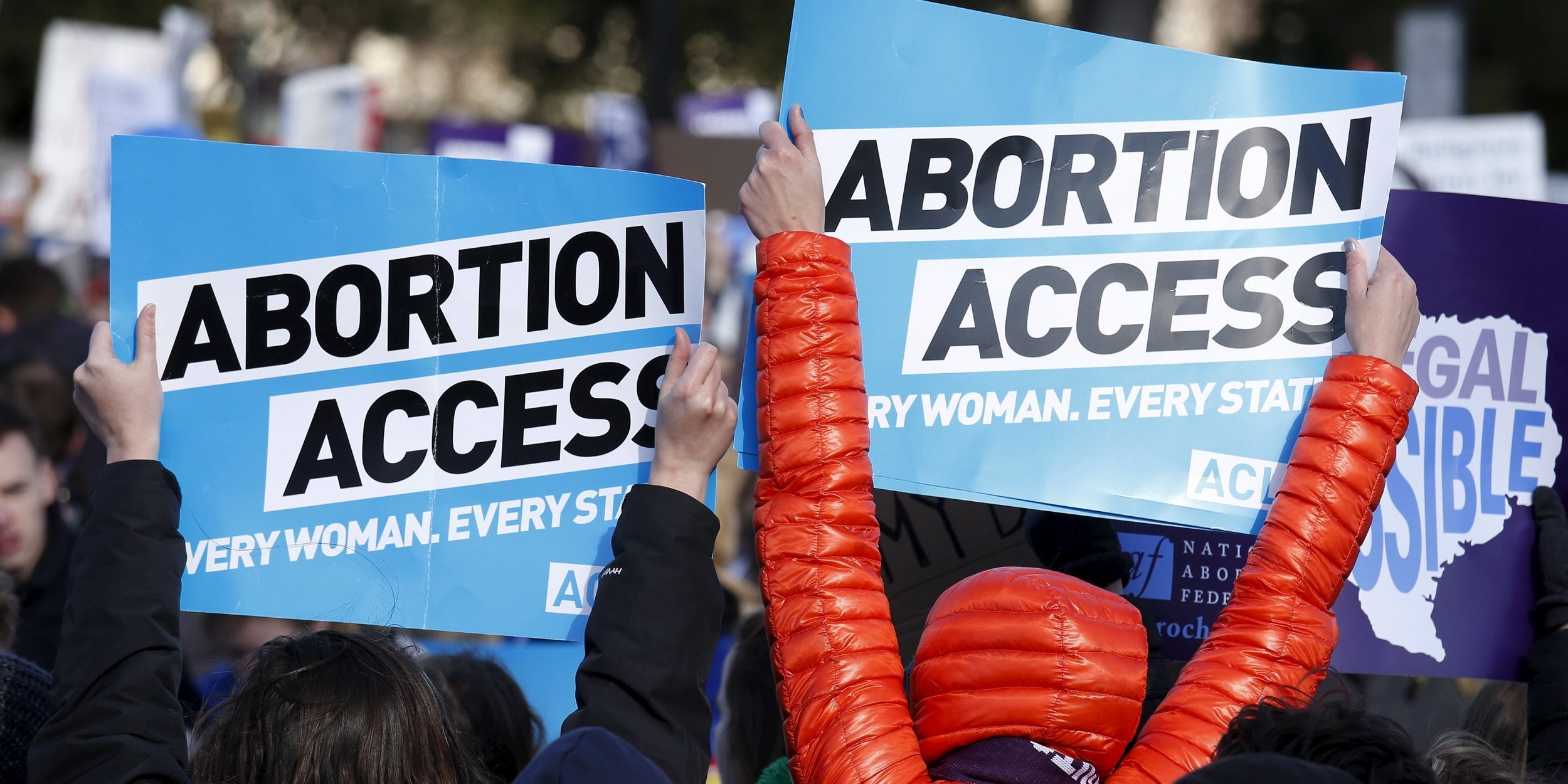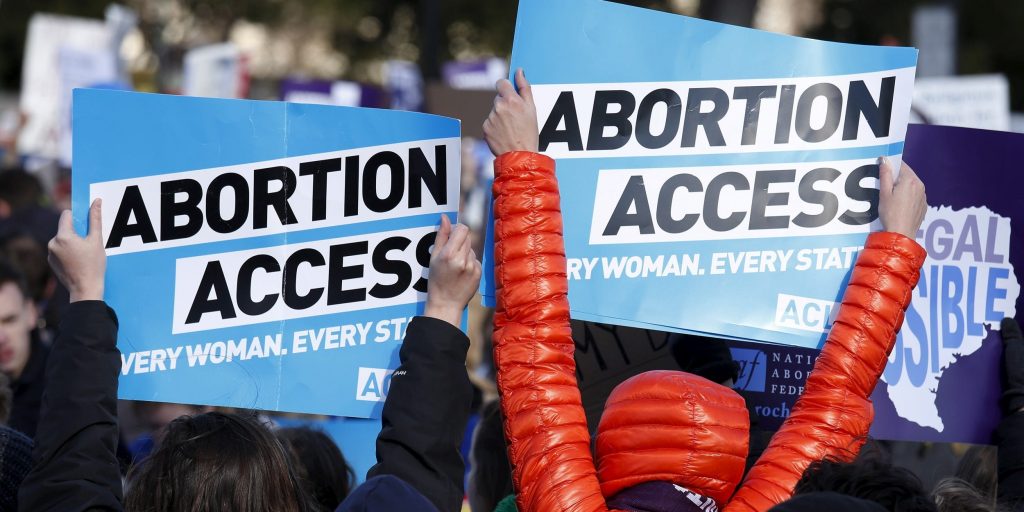
REUTERS/Kevin Lamarque
- President Joe Biden's proposed federal budget excludes the Hyde Amendment.
- That provision, passed in 1977, has prohibited federal spending on abortion.
- Supporters of reproductive rights hailed the decision.
- See more stories on Insider's business page.
Much has been made of what is included in President Joe Biden's proposed $6 trillion federal budget, but supporters of reproductive rights are praising a key omission: a federal ban on funding abortion.
Known as the Hyde Amendment, that prohibition has been law since 1977. In practice, it means the federal government cannot cover the cost of abortions under Medicaid, the federal insurance program used by some 72 million low-income Americans. The Indian Health Service, which provides care to more than 2.5 million indigenous people, is also barred from providing abortion services.
A GOP effort to make the ban permanent failed the last time Republicans controlled the House. And in 2016, the Democratic Party formally endorsed scrapping the prohibition, named after its original Republican sponsor, Illinois Congressman Henry Hyde.
Alexis McGill Johnson, president and CEO of Planned Parenthood, called Biden's move an "historic step in the fight for reproductive freedom."
"For far too long, the Hyde Amendment has put the government in control of a personal health care decision for many people with low incomes," she said.
It is far from guaranteed that the Hyde Amendment will be tossed aside in the budget ultimately passed by Congress. But if it is, it would have a significant impact on the health care options of low-income women. According to the Kaiser Family Foundation, nearly one in five women of reproductive age is covered by Medicaid.
The budget proposal "marks a historic step toward finally ending the coverage bans that have pushed abortion care out of reach and perpetuated inequality for decades," Georgeanne Usova, senior legislative counsel at the American Civil Liberties Union, said in a statement.

